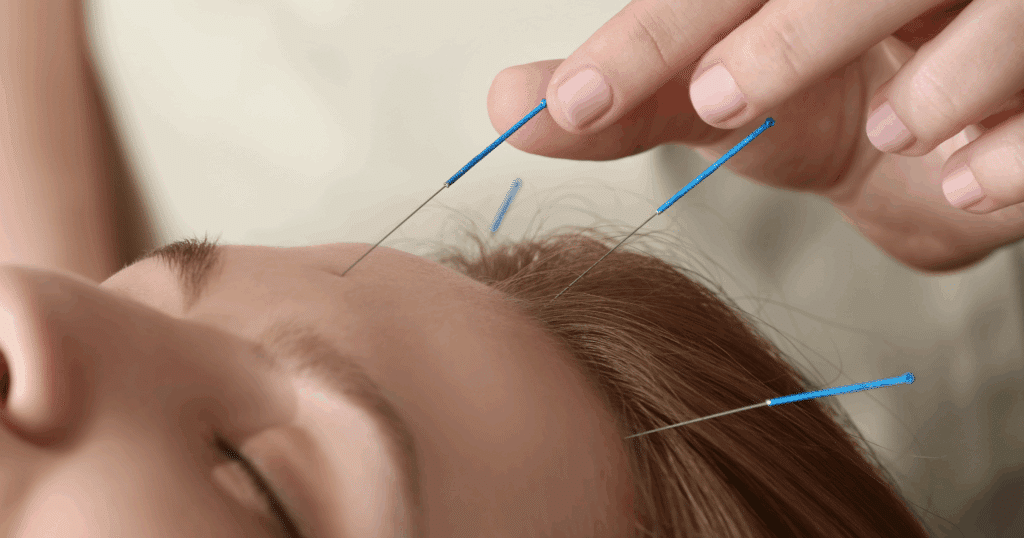Acupuncture for Allergies: A Holistic Approach to Lasting Relief
Allergies impact more than just our noses and eyes; they can take a toll on our overall quality of life. Persistent sneezing, nasal congestion, itchy eyes, and fatigue often mean disrupted days and restless nights. Many who suffer from allergies feel caught in a cycle of temporary symptom relief followed by frustrating returns to discomfort. While medication offers quick fixes, it doesn’t always address the deeper imbalances that cause these reactions. This is where acupuncture offers a different and promising approach.
Throughout the seasons, whether spring blooms, fall leaves, or the dust of winter, many people find themselves burdened with ongoing allergy symptoms. Acupuncture, a time-honored practice rooted in traditional medicine, focuses on restoring harmony within the body’s energy systems. It aims to strengthen the immune response and calm inflammation rather than simply masking symptoms.
Acupuncture for Allergies: A Holistic Approach to Lasting Relief
Allergies impact more than just our noses and eyes; they can take a toll on our overall quality of life. Persistent sneezing, nasal congestion, itchy eyes, and fatigue often mean disrupted days and restless nights. Many who suffer from allergies feel caught in a cycle of temporary symptom relief followed by frustrating returns to discomfort. While medication offers quick fixes, it doesn’t always address the deeper imbalances that cause these reactions. This is where acupuncture offers a different and promising approach.
Throughout the seasons, whether spring blooms, fall leaves, or the dust of winter, many people find themselves burdened with ongoing allergy symptoms. Acupuncture, a time-honored practice rooted in traditional medicine, focuses on restoring harmony within the body’s energy systems. It aims to strengthen the immune response and calm inflammation rather than simply masking symptoms.
Key Takeaways
- Acupuncture for allergies regulates immune balance, addressing root causes instead of masking symptoms.
- Patients often gain lasting relief from nasal congestion and sneezing, with fewer medication side effects.
- Energy, sleep, and mood frequently improve through acupuncture, supporting overall wellness beyond allergy care.
- Treatment is customized for each patient’s unique needs, offering flexibility as symptoms evolve.
- Acupuncture complements lifestyle and dietary changes, creating a holistic path for allergy management.
Understanding Allergies and Acupuncture
What Are Allergies?
Allergies develop when the immune system mistakenly identifies harmless substances such as pollen, dust mites, or pet dander as threats. This triggers an immune response characterized by the release of histamines and other inflammatory chemicals, leading to symptoms like sneezing, nasal congestion, itchy eyes, postnasal drip, and fatigue. Allergies can be seasonal, affecting people during certain times of year, or perennial, persisting year-round due to constant exposure to indoor allergens.
Conventional Treatments for Allergies
Most allergy sufferers reach for antihistamines, corticosteroids, or decongestants to control their symptoms. While effective in calming immune reactions, these medications often carry side effects such as drowsiness, dry mouth, and in rare cases, long-term dependency or diminished effectiveness. Additionally, these treatments primarily mask symptoms rather than addressing root causes of immune imbalance.
Foundations of Acupuncture and Traditional Chinese Medicine
Rooted in Traditional Chinese Medicine (TCM), acupuncture views health as a state of balanced Qi, or vital energy, flowing through meridians, pathways connecting organs and bodily functions. When Qi is blocked or deficient, symptoms arise. Allergies in TCM are often associated with imbalances in the Lung and Spleen meridians and weakened Wei Qi, the body’s protective energy.
Acupuncture works by stimulating specific points on the body to unblock and strengthen Qi flow, restore harmony between Yin and Yang, and fortify the immune system. Unlike symptom-focused conventional medications, acupuncture strives to correct internal imbalances that make one susceptible to allergic reactions.
How Acupuncture Works for Allergies
Balancing the Immune System and Inflammation
Modern research increasingly supports acupuncture’s role in modulating the immune system. Acupuncture has been shown to regulate levels of Immunoglobulin E (IgE), the antibody triggering allergic responses, effectively reducing hypersensitivity. It also influences cytokines, proteins that mediate immune and inflammatory reactions, and enhances the nasal mucosal barrier to reduce allergen penetration.
Autonomic Nervous System Regulation
The autonomic nervous system governs involuntary bodily functions, including nasal blood flow. Allergic reactions often involve overactivity of the sympathetic nervous system, causing nasal swelling and congestion. Acupuncture can balance this system by calming sympathetic overactivity and stimulating the parasympathetic system, leading to reduced nasal inflammation and improved breathing.
Neurotransmitter and Brain Activation
Another fascinating aspect is acupuncture’s ability to activate brain regions such as the hypothalamus and brainstem, which regulate immune responses and emotional well-being. By promoting the release of neurotransmitters like serotonin and endogenous opioids, acupuncture not only alleviates physical symptoms but also reduces anxiety and improves sleep quality, factors often compromised by allergies.
Common Acupuncture Points for Allergy Relief
Acupuncture’s precision lies in the careful selection of points tailored to each patient’s symptoms and constitution. Here are some key points frequently targeted for allergy relief:
LI 4 (Hegu)
LI 4, also known as Hegu or “Joining Valley,” is located between the thumb and index finger where a fleshy mound forms when the two fingers are pinched together. This powerful point regulates Wei Qi, the body’s defensive energy, helping to expel external pathogens responsible for allergy flare-ups. Stimulating LI 4 can relieve nasal congestion, headaches, facial pain, and promote healthy circulation in the upper body, making it a cornerstone in allergy treatment.
LI 20 (Ying Xiang)
Located beside each nostril, LI 20 directly influences the nasal passages and sinus areas, making it an effective point for alleviating congestion and swelling. Needle stimulation here helps open airways and supports clearer breathing by reducing inflammation in the nasal mucosa. This point often provides swift relief from the stuffy, blocked feeling allergies can cause.
LU 7 (Lieque)
LU 7 can be found near the wrist on the forearm, marking an important point along the Lung meridian. Since the Lung governs our immune defense and respiration in TCM, activating LU 7 helps strengthen immune responses and open airways. It’s especially helpful for symptoms such as cough, shortness of breath, and nasal congestion linked to allergic reactions.
ST 36 (Zusanli)
Situated just below the knee, ST 36 is a vital point for boosting overall energy, digestion, and immune function. Its stimulation supports the body’s resilience against chronic allergies by enhancing the Spleen’s role in producing healthy Qi and blood. Patients often report feeling more energized and balanced after treatments targeting this point.
BL 2 (Cuanzhu)
Found at the inside edges of the eyebrows, BL 2 is excellent for addressing sinus headaches and eye irritation that frequently accompany allergies. Gently stimulating this point can ease tension and reduce the sensation of pressure in the brow and around the eyes. BL 2 is favored for its ability to provide rapid comfort for allergy-induced facial discomfort.
GV 20 (Bai Hui)
Located at the top-center of the head, GV 20 acts as a calming, harmonizing point that promotes the smooth flow of Qi throughout the body. Its stimulation can help reduce anxiety, improve mental clarity, and support balanced immune function. GV 20 plays an important role in alleviating emotional and physical stress tied to chronic allergy conditions.
SP 6 (Spleen 6)
Positioned on the inner leg above the ankle, SP 6 influences the Spleen meridian and enhances digestive and immune health. Since digestive function is closely linked to immune resilience in TCM, supporting the Spleen helps the body better manage allergens and inflammation. SP 6 also aids in harmonizing Yin and Yang, which is essential for restoring overall balance.
By addressing these points in combination, acupuncture offers a multi-dimensional approach that tackles symptoms and strengthens systemic immunity.
Acupuncture Treatment Process for Allergies
What to Expect During a Session
A typical session involves a brief assessment followed by the placement of very thin needles on selected points. Most patients describe the sensation as a mild tingling or gentle pressure rather than pain. Treatments usually last about 30 minutes, during which patients often feel deeply relaxed or even sleepy.
Frequency and Duration
For seasonal allergies, we recommend starting treatments about one to two months before allergy season, receiving sessions once or twice weekly. Chronic or perennial allergy sufferers may require longer treatment courses with appointments extending over several months. Preventive care combined with acute symptom management yields the best results.
Combining with Other Therapies
Acupuncture can complement conventional medications, reducing dependency and side effects, or be used alongside herbal remedies tailored to individual patterns. It is always wise to coordinate care with both our acupuncturist and primary care provider for a holistic treatment plan.
Scientific Evidence Supporting Acupuncture for Allergies
Scientific studies have shown that acupuncture offers significant benefits for allergic rhinitis by reducing symptoms and improving patients’ quality of life. Clinical trials consistently report decreases in nasal congestion, itching, and sneezing, as well as lowered levels of Immunoglobulin E (IgE), which is central to allergic reactions. Additionally, acupuncture treatments help reduce inflammation and restore immune balance, often resulting in less dependence on conventional allergy medications while minimizing side effects.
Research also reveals that acupuncture positively influences the autonomic nervous system and brain regions involved in immune regulation, providing a mind-body connection that enhances overall allergy relief. This dual impact not only eases physical symptoms but can also reduce anxiety and improve sleep, fostering a more holistic healing experience for allergy sufferers. These findings emphasize acupuncture as a valuable complement or alternative to standard allergy treatments.
Benefits of Acupuncture Compared to Conventional Treatments
Addresses the Root Cause Naturally
Acupuncture works by restoring balance in the body rather than simply masking symptoms. Unlike antihistamines or steroids, it avoids side effects like drowsiness, rebound congestion, or long-term health risks. This makes it a safer and more sustainable solution for managing chronic conditions.
Improves Energy, Sleep, and Overall Vitality
Patients often notice benefits that extend well beyond symptom relief, including higher energy levels, deeper sleep, and improved mood. Conventional allergy medications rarely deliver these whole-body improvements. By supporting the body’s natural systems, acupuncture promotes a more resilient sense of well-being.
Provides Personalized and Flexible Care
Every acupuncture session is tailored to the patient’s unique health needs and changing symptoms. Treatments can be adjusted over time to reflect progress or address new concerns. This individualized approach creates a dynamic, patient-centered path to healing.
Complementary Lifestyle and Dietary Advice for Allergy Management
Minimizing Allergen Exposure
Simple changes in daily habits can profoundly impact allergy symptoms:
- Regular dusting and vacuuming to reduce dust mites
- Keeping windows closed during high pollen days
- Using air purifiers to minimize airborne allergens
- Showering after outdoor activities to rinse off pollen
Dietary Support for Immune Health
In TCM, diet influences Qi and immune function. We recommend reducing dampness-contributing foods such as excessive sugar, dairy, and cold/raw items during allergy season. Incorporating warming foods rich in antioxidants and anti-inflammatory properties, ginger, garlic, turmeric, and green leafy vegetables, can enhance immunity and reduce allergic inflammation.
Acupressure for Self-Care
Acupressure offers an accessible way to alleviate allergy discomfort between acupuncture sessions. Applying gentle, rhythmic pressure to points such as LI 4 (between the thumb and index finger) and LI 20 (beside the nostrils) can help open nasal passages and ease sinus pressure. Regular self-massage of these points encourages circulation and immune balance, empowering you to take an active role in your allergy relief journey.
A Collaborative Path to Wellness
At ACA Acupuncture & Wellness, we believe healing is a partnership. Allergies are complex and often require multifaceted care. Through acupuncture, lifestyle adjustments, and compassionate guidance, we empower patients to reclaim their health and vitality.
If allergies have become an unwanted constant, consider exploring acupuncture as a safe, effective, and holistic approach. Together, we can build resilience to the causes of allergic reactions and help you experience the freedom of clearer breathing and renewed energy.
Source:
Roberts, J., Huissoon, A., Dretzke, J., Wang, D., & Hyde, C. (2008). A systematic review of the clinical effectiveness of acupuncture for allergic rhinitis. BMC Complementary and Alternative Medicine, 8(1). https://doi.org/10.1186/1472-6882-8-13
Frequently Asked Questions
Does acupuncture really help with allergies?
Yes, acupuncture has been shown by multiple clinical studies to help alleviate allergy symptoms such as sneezing, nasal congestion, and itchy eyes. It works by regulating the immune system, reducing inflammation, and improving the nasal mucosal barrier, which helps prevent allergens from triggering reactions. While results can vary by individual, acupuncture is considered a safe and effective complementary therapy for allergic rhinitis and other allergy types.
How long does acupuncture last for allergies?
The duration of acupuncture’s effects on allergies typically depends on the individual’s condition, severity, and treatment frequency. Some patients experience symptom relief lasting several weeks to months after a course of treatments, especially when combined with preventive approaches starting before allergy season. Regular maintenance sessions can help sustain benefits and improve immune resilience over time.
What does Chinese medicine say about allergies?
Chinese medicine views allergies as imbalances in the body’s Qi, particularly involving weakened Lung and Spleen meridians and deficient Wei Qi (defensive energy). Allergic symptoms are seen as signs of disrupted energy flow and external pathogenic invasion, leading to impaired immune defenses. Treatment aims to restore internal balance, strengthen the immune system, and expel external factors to reduce hypersensitivity.
What does your body do to fight allergies?
When your body encounters allergens, the immune system mistakenly treats them as threats and produces Immunoglobulin E (IgE) antibodies. These antibodies trigger the release of histamines and other inflammatory chemicals causing swelling, mucous production, and itching. The body also activates immune cells to combat perceived invaders, resulting in classic allergy symptoms as a side effect.
How to flush allergens out of your system?
To help flush out allergens, nasal irrigation with saline solutions can rinse away pollen, dust, and other irritants from nasal passages. Drinking plenty of water supports kidney function and helps flush toxins through urine, while sweating through exercise or sauna use can aid detoxification. Supporting liver health with a balanced diet and reducing exposure to allergens further assists the body’s natural cleansing mechanisms.
How to get rid of allergies with acupuncture?
Acupuncture helps manage allergies by stimulating specific points that regulate immune response and reduce inflammation rather than simply suppressing symptoms. Over a series of treatments, it strengthens the body’s defensive energy (Wei Qi) to better resist allergens and improves mucosal barrier function to prevent allergen entry. Combining acupuncture with lifestyle and dietary changes enhances long-term allergy relief and overall immune balance.
Contact ACA Acupuncture & Wellness
Get in Touch
Newsletter Sign Up
LOCATIONS
MANHATTAN
QUEENS
NEW JERSEY
CALIFORNIA

ACA Franchise Opportunities
The over $4 billion US acupuncture market offers a great opportunity with over 10% annual growth rates and a continuing flow of new patients interested in the benefits of acupuncture.








